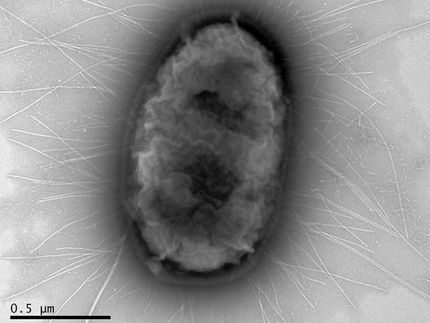Alfred Sommer Receives The Bristol-Myers Squibb/Mead Johnson Award For Distinguished Achievement In Nutrition Research
EVANSVILLE, INDIANA (October 12, 2001) -- Alfred Sommer, M.D., M.H.S., is the recipient of the 21st Annual Bristol-Myers Squibb/Mead Johnson Award for Distinguished Achievement in Nutrition Research for his contributions to our understanding of the origin, magnitude and control of nutritional blindness (xerophthalmia/keratomalcia). He received the $50,000 cash award and a silver medallion at a ceremony in Evansville on October 11, 2001.
Dr. Sommer discovered that vitamin A deficiency, which causes xerophthalmia, dramatically increases childhood morbidity and mortality from infectious diseases, particularly measles and diarrhea, even in its earliest, symptomless stages. He demonstrated that improvement in vitamin A status reduced measles case-fatality by half and overall childhood mortality by one-third.
"Dr. Sommer richly deserves the Nutrition Award for his pioneering investigations," said Robert A. Burns, Ph.D., Director, Discovery, Global Research and Development, Mead Johnson Nutritionals, a division of Bristol-Myers Squibb Company. "His research has led to global policy initiatives to control micronutrient deficiencies, particularly vitamin A deficiency, and has encouraged new areas of scientific inquiry into the health implications of early, subclinical deficiencies and their underlying mechanisms."
Dr. Sommer is Dean and Professor of Epidemiology and International Health, the Johns Hopkins University Bloomberg School of Public Health, and Professor of Ophthalmology, the Wilmer Institute, the Johns Hopkins University School of Medicine. He began his career in 1969 as a young scientist in the Centers for Disease Control Epidemic Intelligence Service (EIS), signing up for the EIS's Cholera Research Laboratory in Bangladesh in 1970. Following a devastating cyclone, in which hundreds of thousands of people died, he and Henry Mosely, M.S, M.P.H., who directed the Bangladesh program, traveled throughout the devastated area to determine the extent of the damage and the relief the people had received.
Dr. Sommer and Mosely later collaborated on a landmark paper on their epidemiological approach to disaster assessment, published in Lancet in 1972, a seven-page article, which was the longest the journal had ever published. Then, as a consultant to the World Health Organization (WHO) at the time an epidemic of smallpox was spreading rapidly among refugees in Bangladesh, Dr. Sommer reorganized a devastated health service and improved surveillance and containment efforts in the most heavily infested cities.
Dr. Sommer began studying vitamin A deficiency in 1972, when it first appeared that it might represent a major cause of childhood blindness. From 1973-1976, while he completed his ophthalmology residency at the Wilmer Ophthalmologic Institute, he began his early studies in El Salvador and Haiti. These studies served as benchmarks for subsequent population surveys to determine the extent of vitamin A deficiency and whether it warranted large-scale intervention.
Topics
Organizations
Other news from the department people

Get the life science industry in your inbox
By submitting this form you agree that LUMITOS AG will send you the newsletter(s) selected above by email. Your data will not be passed on to third parties. Your data will be stored and processed in accordance with our data protection regulations. LUMITOS may contact you by email for the purpose of advertising or market and opinion surveys. You can revoke your consent at any time without giving reasons to LUMITOS AG, Ernst-Augustin-Str. 2, 12489 Berlin, Germany or by e-mail at revoke@lumitos.com with effect for the future. In addition, each email contains a link to unsubscribe from the corresponding newsletter.























































